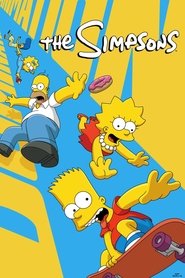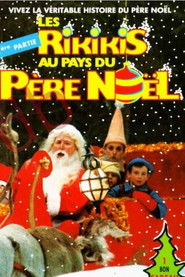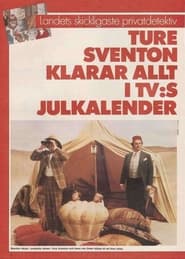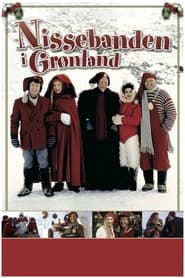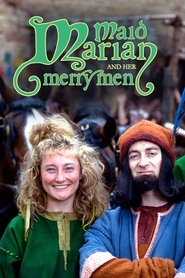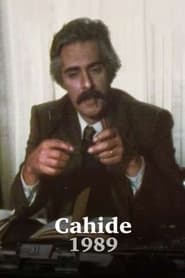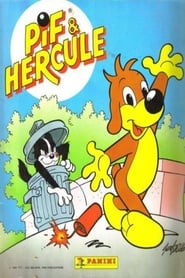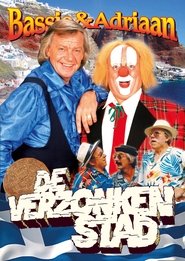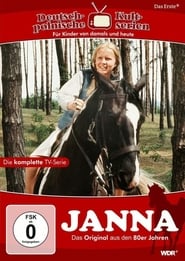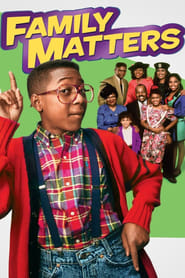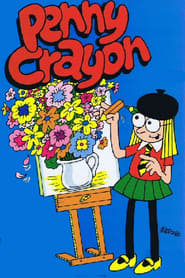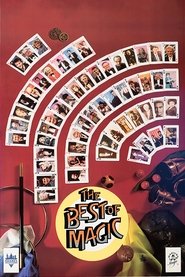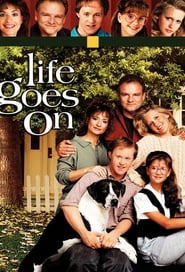New Family TV Series on Tub Tv - Page 390
-
The Simpsons
1989
The Simpsons
1989
star 8Set in Springfield, the average American town, the show focuses on the antics and everyday adventures of the Simpson family; Homer, Marge, Bart, Lisa and Maggie, as well as a virtual cast of thousands. Since the beginning, the series has been a pop culture icon, attracting hundreds of celebrities to guest star. The show has also made name for itself in its fearless satirical take on politics, media and American life in general. -
Ture Sventon privatdetektiv
1989
star 9Private eye Ture Sventon solves crimes in Lingonboda, the Arabian desert, London, and Stockholm. His secretary, Ms. Jansson, and good friend, Mr. Omar aids him in the constant battle against his arch-enemy, Vilhelm Vessla. Based on the books by Åke Holmberg. -
Maid Marian and Her Merry Men
1989
star 5.8Maid Marian and her Merry Men is a British children's sitcom created and written by Tony Robinson and directed by David Bell. It began in 1989 on BBC One and ran for four series, with the last episode shown in 1994. The show was a partially musical comic retelling of the legend of Robin Hood, placing Maid Marian in the role of leader of the Merry Men, and reducing Robin to an incompetent ex-tailor. The programme was much appreciated by children and adults alike, and has been likened to Blackadder, not only for its historical setting and the presence of Tony Robinson, but also for its comic style. It is more surreal than Blackadder, however, and drops even more anachronisms. Many of the show's cast such as Howard Lew Lewis, Forbes Collins, Ramsay Gilderdale and Patsy Byrne had previously appeared in various episodes of Blackadder alongside Robinson. Like many British children's programmes, there is a lot of social commentary sneakily inserted, as well as witty asides about the Royal family, buses running on time, e -
Cahide
1989
Cahide
1989
-
Join In!
1989
Join In!
1989
Every program had a number of elements woven into the plot line that invited its audience to "Join In!"; in games, songs, puzzles, or stories. The cast also broke the fourth wall, talking to the camera, and thus the audience, as if they were right there on set. The songs broke away from the usual children's format, offering a wide variety of rhythm and styles. The cast also sang live on each show. -
L'or et le papier
1989
L'or et le papier
1989
-
Pif et Hercule
1989
-
Bassie en Adriaan: De Verzonken Stad
1989
Bassie finds a mysterious stone while on holiday in Greece. Three crooks are very interested in the secret the stone holds. -
Bluebirds
1989
Bluebirds
1989
Bluebirds was a CBBC drama broadcast on 5 October to 9 November 1989, for six episodes. Set in London, youth group the Bluebirds try to protect their housing project from vandalism by local criminal Robbins. -
Cristina
1989
-
Janka
1989
-
Family Matters
1989
Family Matters
1989
star 6.8A long-running dramedy centering on the Winslow family, a middle-class African American family living in Chicago, and their pesky next-door neighbor, ultra-nerd Steve Urkel. A spin-off of Perfect Strangers. -
Major Dad
1989
Major Dad
1989
star 6.4Major Dad is an American sitcom created by Richard C. Okie and John G. Stephens, developed by Earl Pomerantz, that originally ran from 1989 to 1993 on CBS, starring Gerald McRaney as Major John D. MacGillis and Shanna Reed as his wife Polly. The cast also includes Beverly Archer, Matt Mulhern, Jon Cypher, Marisa Ryan, Nicole Dubuc and Chelsea Hertford. -
Penny Crayon
1989
Penny Crayon
1989
star 6Artful Penny could indeed draw anything she wanted with her magic crayon and it would spring into life. A fantastically useful toy to have. Only her best friend friend Dennis knew her secret so the two had acres of fun winding up adults, nosey-parkers, bullies, bad guys, teachers and ne'er-do-wells with her creations, or solving problems for folk, or sketching their way out of tricky situations. Penny would scribble away, her arm becoming a blurr as she worked and then - hey presto! - her line drawing would leap off the drawing surface as a fully-formed 3D object. -
The Best of Magic
1989
The Best of Magic
1989
The Best of Magic was a British magic show produced by Thames Television for the ITV network that aired from 13 September 1989 to 19 September 1990. The show was hosted by Geoffrey Durham, Simon Mayo, and Anthea Turner, with frequent guest appearances by Arturo Brachetti and Max Maven. -
Bodger and Badger
1989
Bodger and Badger
1989
star 6.2Bodger and Badger is a BBC children's comedy programme which was first broadcast in 1989. It starred Andy Cunningham as Simon Bodger, who had a badly behaved companion, a talking badger with a love for mashed potatoes. -
Life Goes On
1989
Life Goes On
1989
star 6.5Life Goes On is a television series that aired on ABC from September 12, 1989, to May 23, 1993. The show centers on the Thatcher family living in suburban Chicago: Drew, his wife Elizabeth, and their children Paige, Rebecca, and Charles, who is known as Corky. Life Goes On was the first television series to have a major character with Down syndrome.
 Netflix
Netflix
 Amazon Prime Video
Amazon Prime Video
 Apple iTunes
Apple iTunes
 Apple TV Plus
Apple TV Plus
 Disney Plus
Disney Plus
 Google Play Movies
Google Play Movies
 Paramount Plus
Paramount Plus
 Hulu
Hulu
 HBO Max
HBO Max
 YouTube
YouTube
 fuboTV
fuboTV
 Peacock
Peacock
 Peacock Premium
Peacock Premium
 Amazon Video
Amazon Video
 The Roku Channel
The Roku Channel
 AMC+
AMC+
 Kocowa
Kocowa
 Hoopla
Hoopla
 The CW
The CW
 Vudu
Vudu
 Starz
Starz
 Showtime
Showtime
 PBS
PBS
 Pantaflix
Pantaflix
 FXNow
FXNow
 Tubi TV
Tubi TV
 Kanopy
Kanopy
 Comedy Central
Comedy Central
 Crunchyroll
Crunchyroll
 Microsoft Store
Microsoft Store
 Redbox
Redbox
 Sun Nxt
Sun Nxt
 ABC
ABC
 DIRECTV
DIRECTV
 Crackle
Crackle
 Fandor
Fandor
 Plex
Plex
